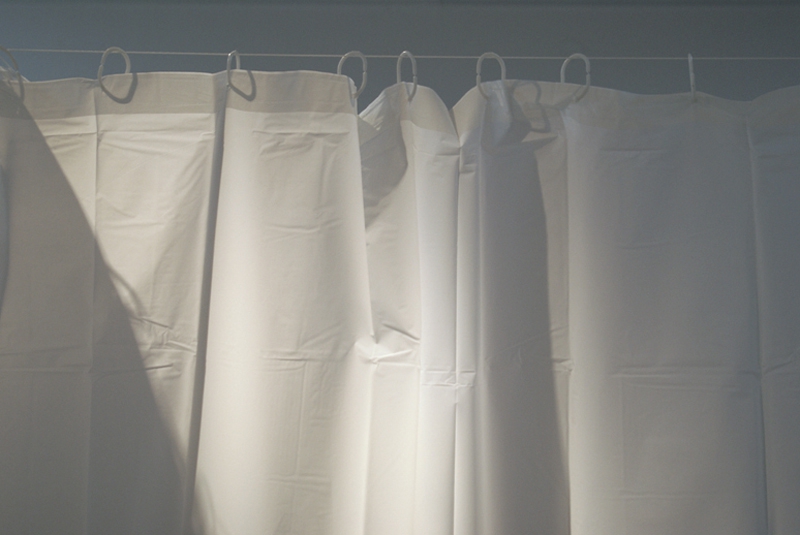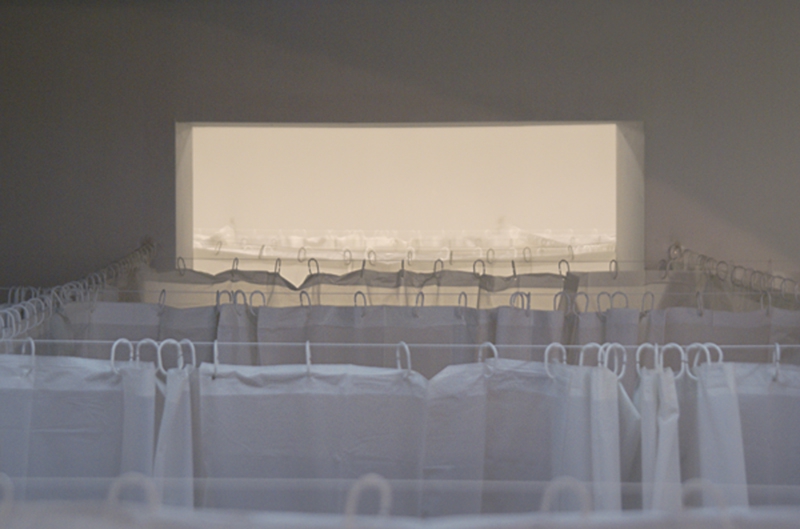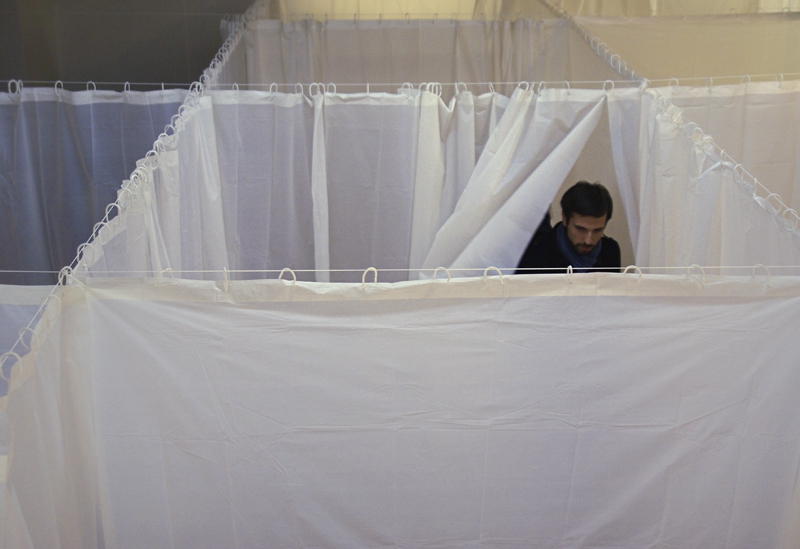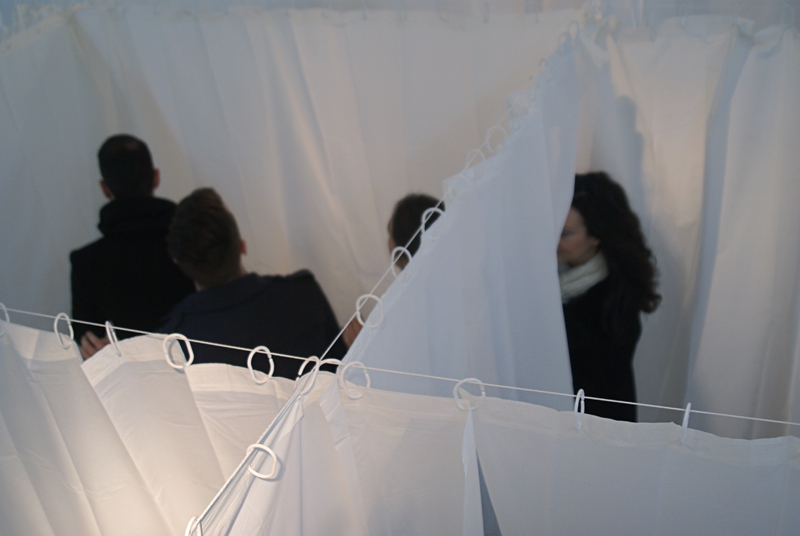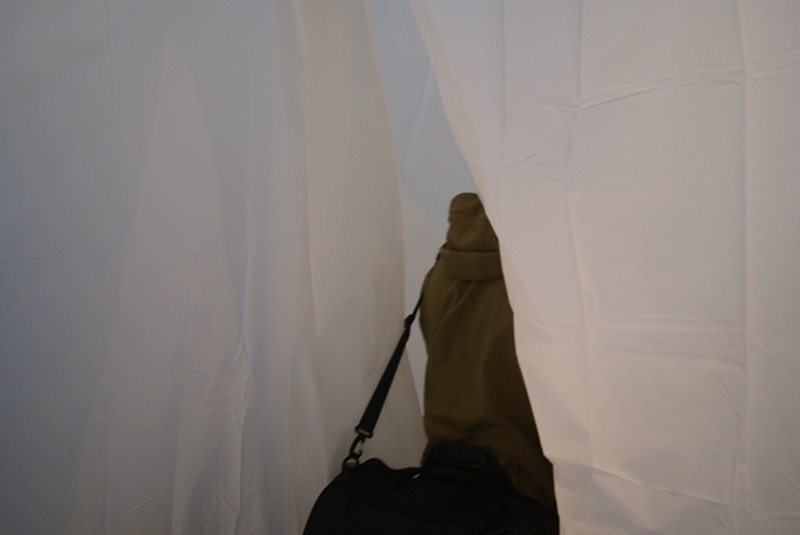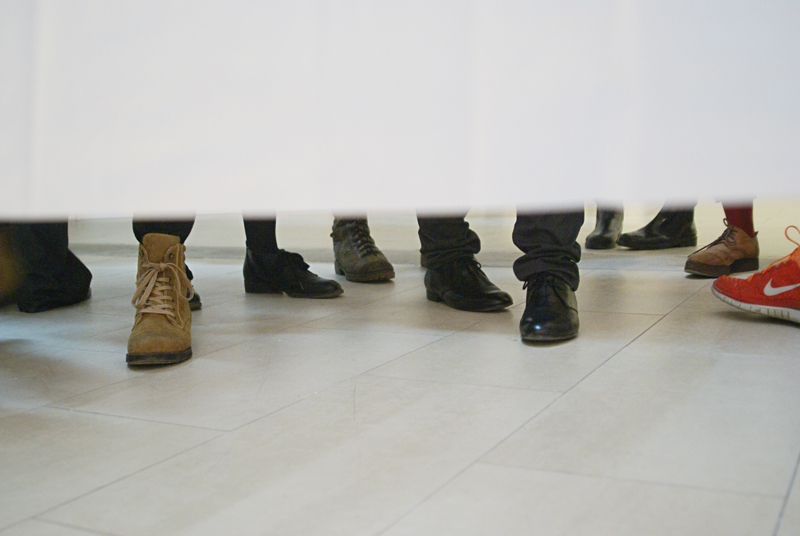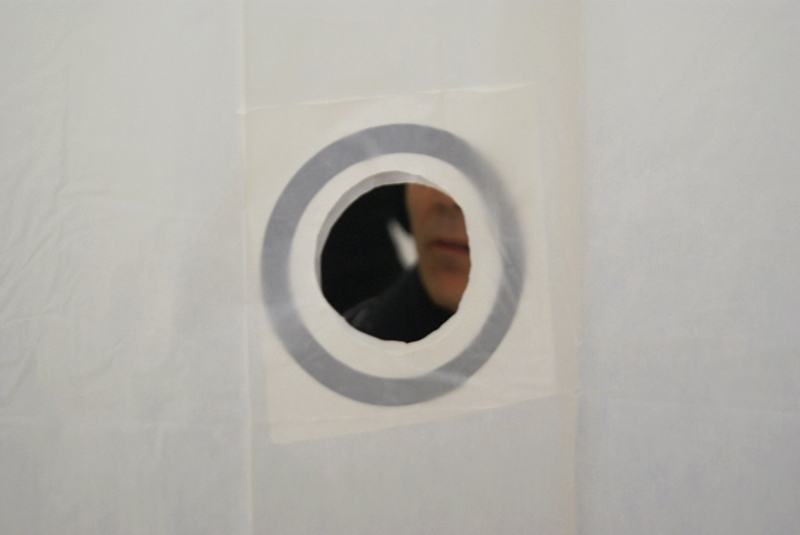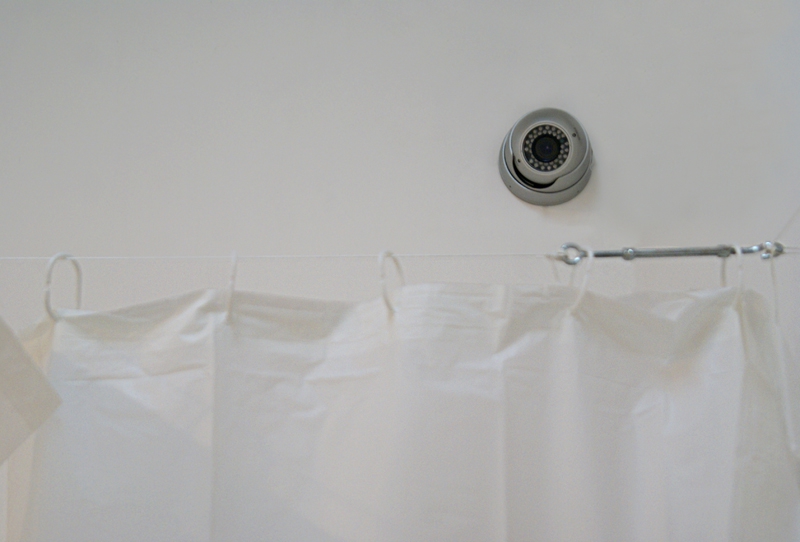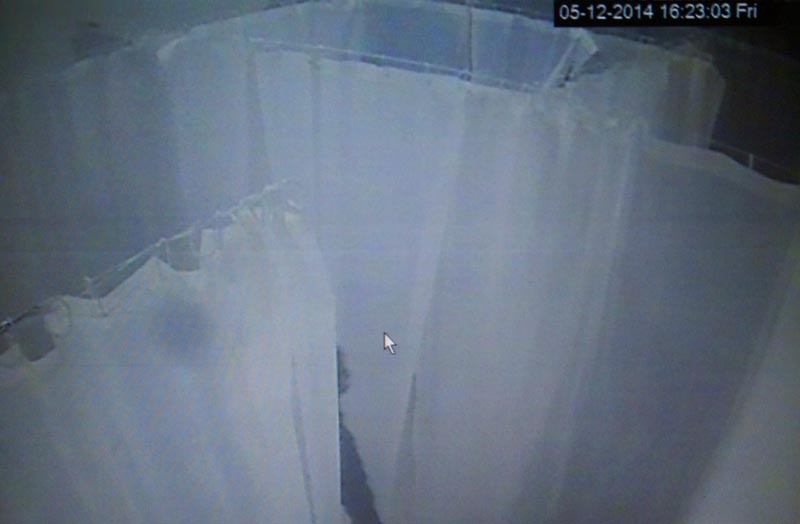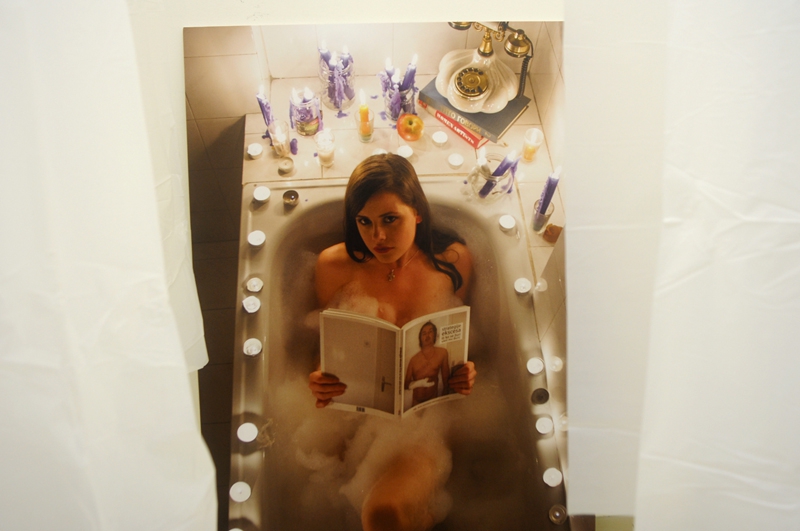ANALIZA PROSTORA / Marija Kauzlarić, Sonja Radaković, Marko Tirnanić
…Je vidai mon verre cul sec et me levai. J'avais envie d'aller me perdre dans Marseille. Dans ses odeurs. Dans les yeux de ses femmes. Ma ville. Je savais que j'y avais toujours rendez-vous avec le bonheur fugace des exilés.
Le seul qui m'allait… Jean Claude Izzo, Vivre Fatigue, J'ai Lu (2001)
(...Sasuo sam sadržaj iz čaše u suvo grlo i krenuo dalje. Imao sam potrebu da se izgubim u Marseju. U njegovim mirisima. U očima njegovih žena. Mog grada. Znao sam da ne mogu izbeći prolaznu sreću izgnanika. Jedinu koja mi je pripadala...)
Osećaj izgnanstva u sopstvenom gradu, okruženju i radu, koji je opisan u citatu preuzetom iz priče Žan Klod Izoa, mogao bi biti prostor susreta između tri umetnika, umetničkog postupka i posetioca. Naime, konstantno se suočavajući sa formalnim i neformalnim ograničenjima unutar određenog prostora, konteksta i pojedinačnih praksi, svakodnevno, svesno ili ne, radimo na sopstvenoj reprezentaciji, identitetu, uspostavljanju i održavanju komunikacije tokom čega nas često prati osećaj izopštenosti i nepripadanja, a s druge strane i potpunog gubitka intimnog prostora koji je zahvaljujući novim tehnologijama postao javan.
Prostorna instalacija, zajednički umetnički rad Marije Kauzlarić, Sonje Radaković i Marka Tirnanića, otvara neka od gore pomenutih pitanja fokusirajući se na odnos prema fizičkom prostoru. Umetnici nam taj prostor otvaraju deleći ga na još manje segmente, kojih postajemo svesni tek kada smo već duboko ušli u njega. Površinski mereno širinom ljudskog tela, novonastali segmenti staju u okvire jednog od najintimnijih fizičkih prostora – u prostor ispod zamišljenog tuša. Zavese iz kupatila, sa tuš kabina i kada su svuda u galeriji. Prolazimo iz jednod u drugi naizgled isparcelisani prostor intimnog u kojem smo ponekad sami, ali suštinski ne znamo šta i ko nas čeka u i iza njega. Prostori u prostoru, kroz koje prolazimo stvaraju blagi osećaj nelagode pred nepoznatim koje pripada i nama ali i onima koji su pojedine zavese koristili.
Izložba, koja se realizuje u okviru programa pod nazivom nove tehnologije pre svega se bavi predmetom i dometom sadržaja, a manje formom, odnosno ova tri umetnika nove tehnologije sagledavaju kroz sam proces tj. načine razmišljanja. Zato u vizuelnom smislu akcenat i nije na digitalnom već predstavi efekata koji nastaju u društvu. S jedne strane suočavamo se sa permenentnim usitnjavanjem vrednosti i konstantnim ukrupljavanjem sopstvenih adaptivnih kapaciteta.
Ukrštajući tri različite umetničke prakse, Marija Kauzlarić, Sonja Radaković i Marko Tirnanić, pokušavaju da kroz zajednički rad promene ograničenja unutar kojih pojedinci slede svoje ciljeve. Kroz analizu prostora, vizuelnim jezikom govore o opasnosti tzv. robotizovanog pridržavanja normi koje samo po sebi predstavlja korupciju ideje javnog prostora koji je skoro uvek na granici ličnih interesa. Zbog toga bi trebalo razumeti i osetiti da očuvanje integriteta koji svaki pojedinac utvrđuje za sebe predstavlja prvi korak u procesu izgradnje pristojnog društva u kakvom svi težimo da živimo, pa je na tom putu pre svega najvažnije poći od sebe i razumevanja intimnog prostora.
Zorana Đaković Minniti
-----------------------
ANALYSIS OF SPACE / Marija Kauzlarić, Sonja Radaković, Marko Tirnanić
…Je vidai mon verre cul sec et me levai. J'avais envie d'aller me perdre dans Marseille. Dans ses odeurs. Dans les yeux de ses femmes. Ma ville. Je savais que j'y avais toujours rendez-vous avec le bonheur fugace des exilés. Le seul qui m'allait…
Jean Claude Izzo, Vivre Fatigue, J'ai Lu (2001)
(…I poured the contents of the glass into my dry throat and carried on. I craved to lose myself in Marseille. In it’s thoughts. In the eyes of its women. Of my city. I knew that I couldn’t avoid the passing luck of a outcast. The only one that belonged to me…)
The sensation of exile in one’s own town, surroundings and work, described in this quote from Jean Claude Izzo’s story could be representative of the space in which three artists approach each other, their respective creative processes and the visitor. Namely, by constantly, consciously or unconsciously confronting the formal and informal limitations within a certain space, context and individual practice we build upon our representation, identity and maintain our communication towards the world, which is frequently followed by feelings of exclusion and non-belonging on one side, and a complete loss of intimate space – now public due to the development of new technologies – on the other.
This spatial installation, the collective work of Marija Kauzlarić, Sonja Radaković and Marko Tirnanić, touches on some of the aforesaid issues through a focus on physical space. The artists present this space to us by dividing it into smaller segments, of which we only gain awareness once we have already tread deep into the piece. Measured by the area of the human body, the newly established segments fit into the boundaries of one of the most intimate scopes of our society – the surface of a shower. Bathroom curtains, of showers and bathtubs are all over the gallery. We pass from one to another seemingly parcelled place of intimacy in which we are sometimes alone, but essentially unaware who or what may be waiting beyond it. Spaces within spaces, through which we pass, create a faint feeling of unease before the unknown that belongs both to us and all those that previously utilized the curtains.
The exhibition, realized within the New technologies program, mainly deals with the object and range of its contents and somewhat less with the form – meaning that the three artists view new technologies through the very modus or process of thought. This is why the accent, in the visual sense, is not on the digital but on the conception of effects it causes within society. We are faced with a persistent fragmentation of values simultaneous with the constant swelling of our adaptive capacities.
Through this hybridization of three artistic practices Maria Kauzlarić, Sonja Radaković and Marko Tirnanić attempt to modify the limits within which individuals pursue their goals. Through an analysis of space, they speak of the dangers of a so-called robotized clinging to norms that in itself represents a corruption of the idea of public space which almost always borders personal interest. Therefore it should be understood that a preservation of integrity that all individuals establish for themselves is the first step towards the construction of a decent world we all strive to live in, meaning that it is vital to have one’s self as a reference point while developing an understanding of intimate space.
Zorana Đaković Minniti
